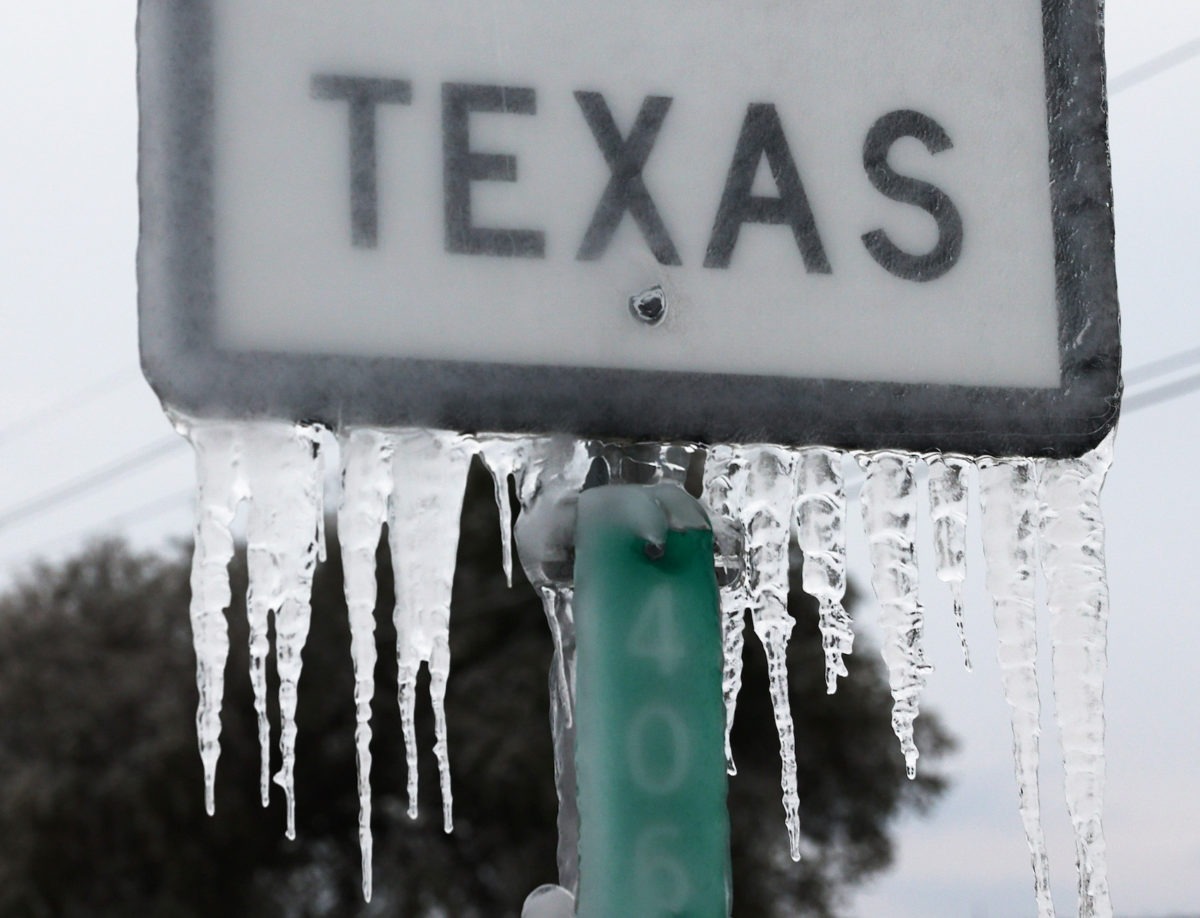San Antonio Bulldozed a Homeless Encampment. Then the Winter Storms Started.
Now, advocacy groups are struggling to keep unhoused people safe.

In late January, Hector Rodriguez joined a team of volunteers in San Antonio to collect tents, blankets, coats, and other winter-weather gear to distribute to the city’s homeless population. Rodriguez, who works with the organization Defund Police SA, said they distributed the items to a large encampment of 75 to 100 unhoused people living under a downtown interstate overpass.
On Feb. 3, Rodriguez watched in horror as the city bulldozed the encampment, took an infant from a 23-year-old mother sleeping at the camp, and threw out many of the tents and coats that he and his team had collected to help keep people warm.
“We were pissed,” Rodriguez told The Appeal. “We raised so much money to buy tents, carts, and jackets, we passed it all out to everybody that needed it, and a week and a half later, we see those brand new tents being thrown in the trash.”
This week, following two storms that brought snow, ice, and life-threatening low temperatures, Texas residents—especially the unhoused and incarcerated—continue to struggle to find warmth and safety. In San Antonio, the population of unhoused residents has boomed during the COVID-19 pandemic. “I didn’t think I’d wake up alive,” Angel Rodriguez Medina, 86, told the Washington Post on Tuesday after spending Monday night’s sub-freezing temperatures with nothing but a sleeping bag. “It was the worst night of my life.” Advocates for the homeless have spent the week looking for unhoused residents and doing all they can to help them get into shelters or hotel rooms to avoid the cold.
In addition to the destruction of the downtown encampment, local advocates accuse Mayor Ron Nirenberg and City Manager Erik Walsh of failing to properly warn residents of the coming storms and slow-walking plans to open warming centers around town. (On May 1, San Antonio voters will decide whether to re-elect Nirenberg for a third term.) Spokespeople for the mayor’s office, city manager, and police department and have not responded to messages from The Appeal.
According to the San Antonio Express-News, the city has spent more than $1.7 million since 2017 to clear at least 500 encampments across the city. In 2018, news crews arrived after the city drove bulldozers over one encampment on the city’s west side and found nothing left but some garbage and tire tracks. Advocates say the city’s random approach to clearing encampments has made outreach during the storm season difficult.
Denise Hernandez, a local advocate for the unhoused who is also an event services coordinator for City Councilmember Roberto Treviño, told The Appeal that she and other advocates had been trying for months to connect people in the city’s homeless encampments with services or housing. She also said that even during this week San Antonio cops have insisted on running background checks on unhoused residents attempting to shelter during the freeze and that local mutual aid organizations, rather than city officials, have done the bulk of protecting people forced to sleep on the streets.
“Where are those folks gonna go?” Hernandez said, referring to those who lived under the overpass downtown. “If they had stayed there, it would have been much easier for outreach this week. We could just get a bus and take them where they need to go to stay warm.”
Less than two hours to the northeast, another Texas city is rethinking how it can help its homeless residents. The Austin City Council recently voted to purchase two hotels, whose operating costs will be paid for with money diverted from the police budget, in order to provide permanent supportive housing for residents experiencing homelessness. In contrast, Governor Greg Abbott, a staunch conservative, has vowed to ban outdoor camping and has pushed legislators to withhold public funding from any city that cuts its police budget.
Despite Abbott’s efforts, the Austin model is spreading to other cities—even San Antonio. The city is leasing a 300-room hotel for unhoused people as a part of its response to COVID-19. And in recent weeks, city officials have also suggested buying a hotel to serve as transitional housing for people like those who’d been sleeping under the Interstate 37 overpass.
The City Council began debating the idea on Feb. 4—one day after police bulldozed the camp.
